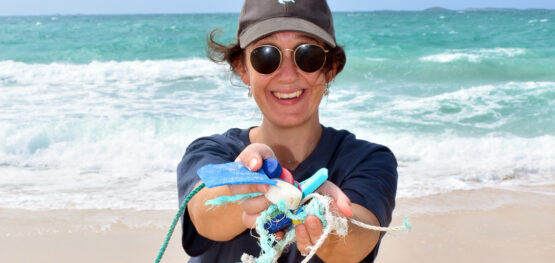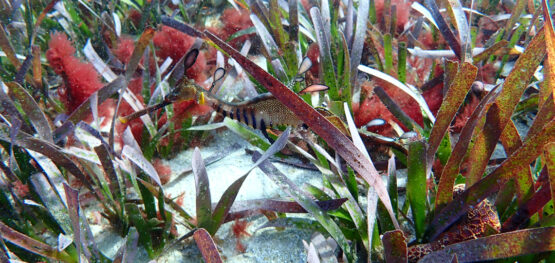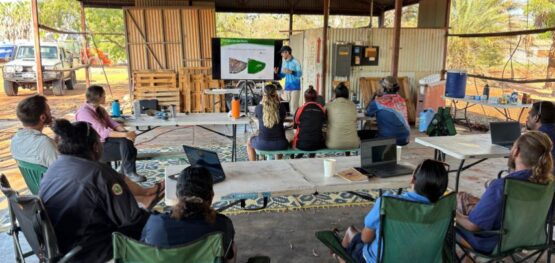Article
12 December 2024
In 2019, researchers from The University of Western Australia (UWA) surveyed recreational users of boat ramps on Wadandi Noogar Boodja in south-western Australia.
The survey asked participants about their awareness of two local Australian Marine Parks (AMPs): Geographe and South-west Corner. Of the people surveyed, 12% were aware of at least one of the parks. A repeat survey in 2023 found awareness had tripled to 36%. These surveys were comparable because they used the same survey method and questions.
The 2019 survey was part of a Marine Biodiversity Hub project (a forerunner of the Marine and Coastal Hub) that collected benchmark data on the awareness, use and perceived value of AMPs. The 2023 survey contributed to developing ‘best practice’ standards for knowledge, attitude and practice (KAP) surveys. This collaborative work was part of a broader hub project that also added best-practice standards for microplastics, and a benthic observation survey system to the Field Manuals for Marine Sampling to Monitor Australian Waters.
The KAP best practice outlines an approach to conduct face-to-face marine protected area (MPA) knowledge, attitude, and practice surveys with recreational users (fishing and non-fishing) at boat ramps and coastal access points.
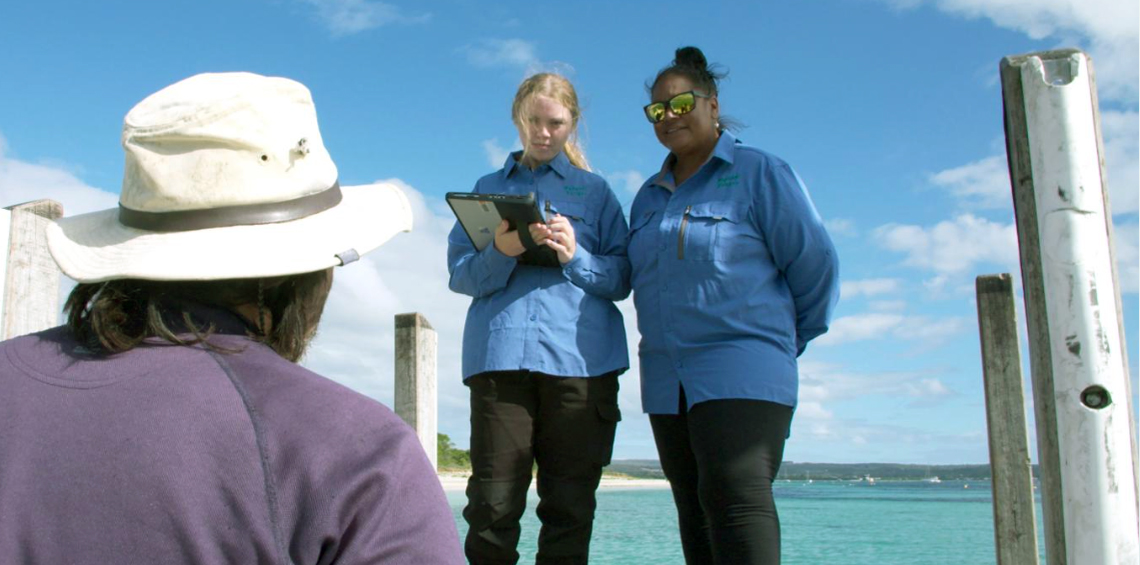
First social sciences best-practice manual
This is the hub’s first social sciences best-practice field manual. It was developed through workshops with marine ecologists, park managers and social scientists across Australia. It was also co-designed with cultural guidance provided by knowledge holders and rangers from the Undalup Association, and the Esperance Tjaltiraak Native Title Aboriginal Corporation (ETNTAC). They agreed on six steps: from the planning and execution of surveys to the analysis and publication of results.
Nicole Hamre of UWA led the development of the KAP. She says its development was motivated by the need for standardisation, and an opportunity to provide a tool for ranger groups interested in understanding how people are using Sea Country.
“Managers and Traditional Owners ask us what people know about parks, how they feel about them, and how people use them,” Dr Hamre says. “A key management goal is to raise awareness and support for parks. By using a consistent approach these sentiments can be tracked and compared across parks and over time, building a more complete picture of management needs.”
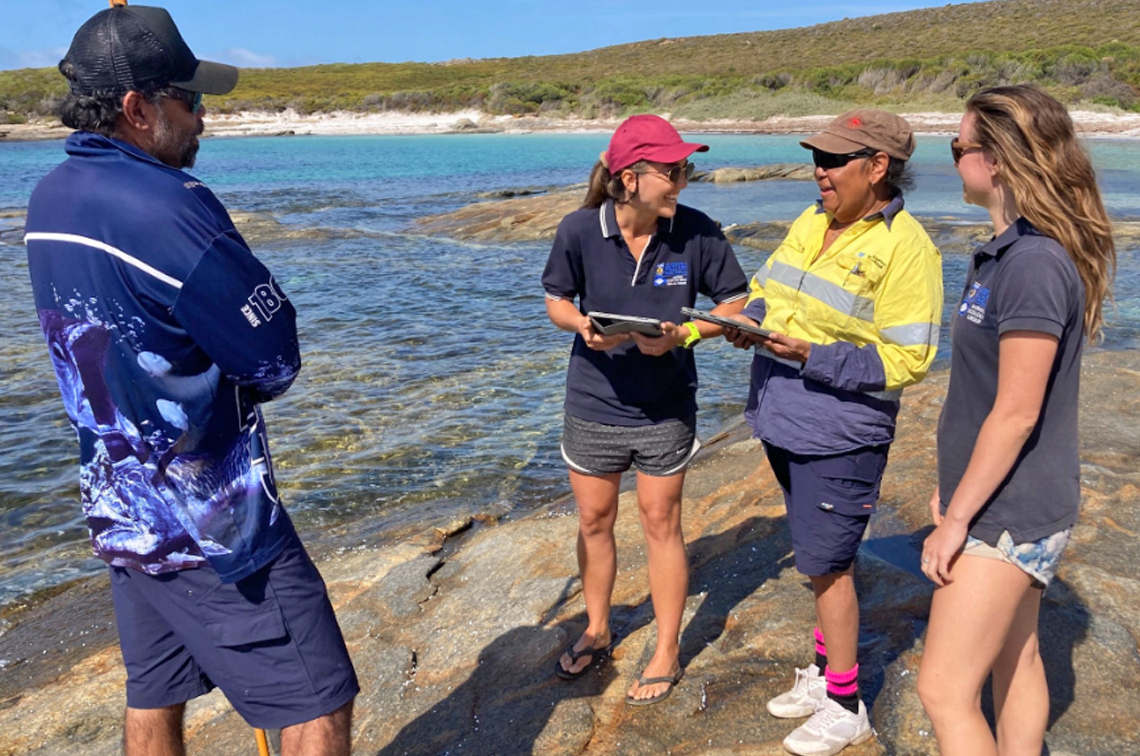
A tool for Indigenous-led research
While the survey tool is designed for consistency, it can also be used and adapted by Traditional Owners and researchers to match local priorities.
“We’re trying to provide a scalable platform for standardisation,” Dr Hamre says. “Extra modules can be added to the core survey, such as through co-design to align with Sea Country priorities.”
Dr Hamre says the KAP best practice method is straightforward and flexible, making it well suited as a tool for empowering ranger-led monitoring of Sea Country. All that’s needed is a tablet with the survey.
“The 2023 survey on Wadandi Country was conducted together with Undalup Rangers, and we will be joining them for further boat ramp surveys this month,” she says.
Undalup Rangers have expressed interest in using the KAP survey as a tool for cultural exchange to share their knowledge and experiences of conducting KAP surveys with other Sea Country rangers.
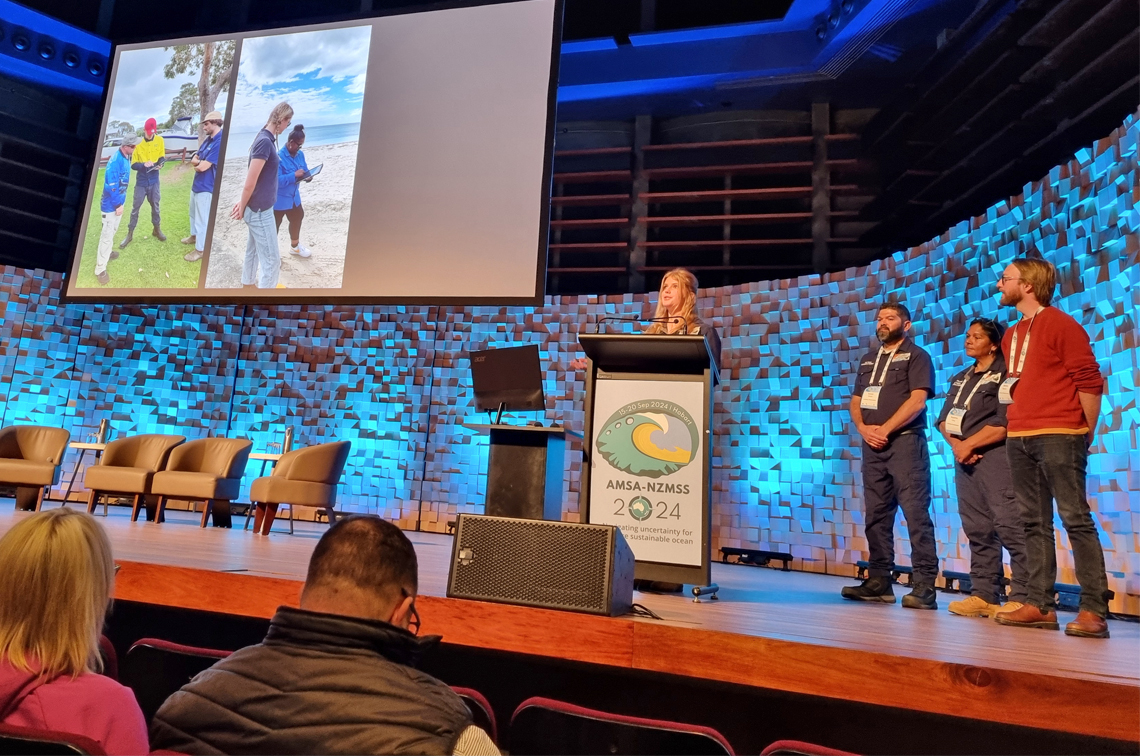
Survey insights
Insights from the 2019 and 2023 surveys on Wadandi Country are of interest to Traditional Owners, and management organisations such as Parks Australia and state government agencies.
For example, Parks Australia’s Communication, Education and Awareness Program seeks to increase awareness, understanding and support for marine parks. Marine social science surveys done consistently are needed to monitor this change.
The survey results reflect well on management actions taken to increase awareness of AMPs. However, significant progress is still to be made to match awareness of the adjacent state marine parks, which was 74% among survey participants in 2023.
This difference in awareness presents an opportunity to compare management and communication approaches with a view to developing effective, tailored messaging to park users.
Related information
Knowledge, Attitude and Practice Surveys Field Manual on GitHub.

